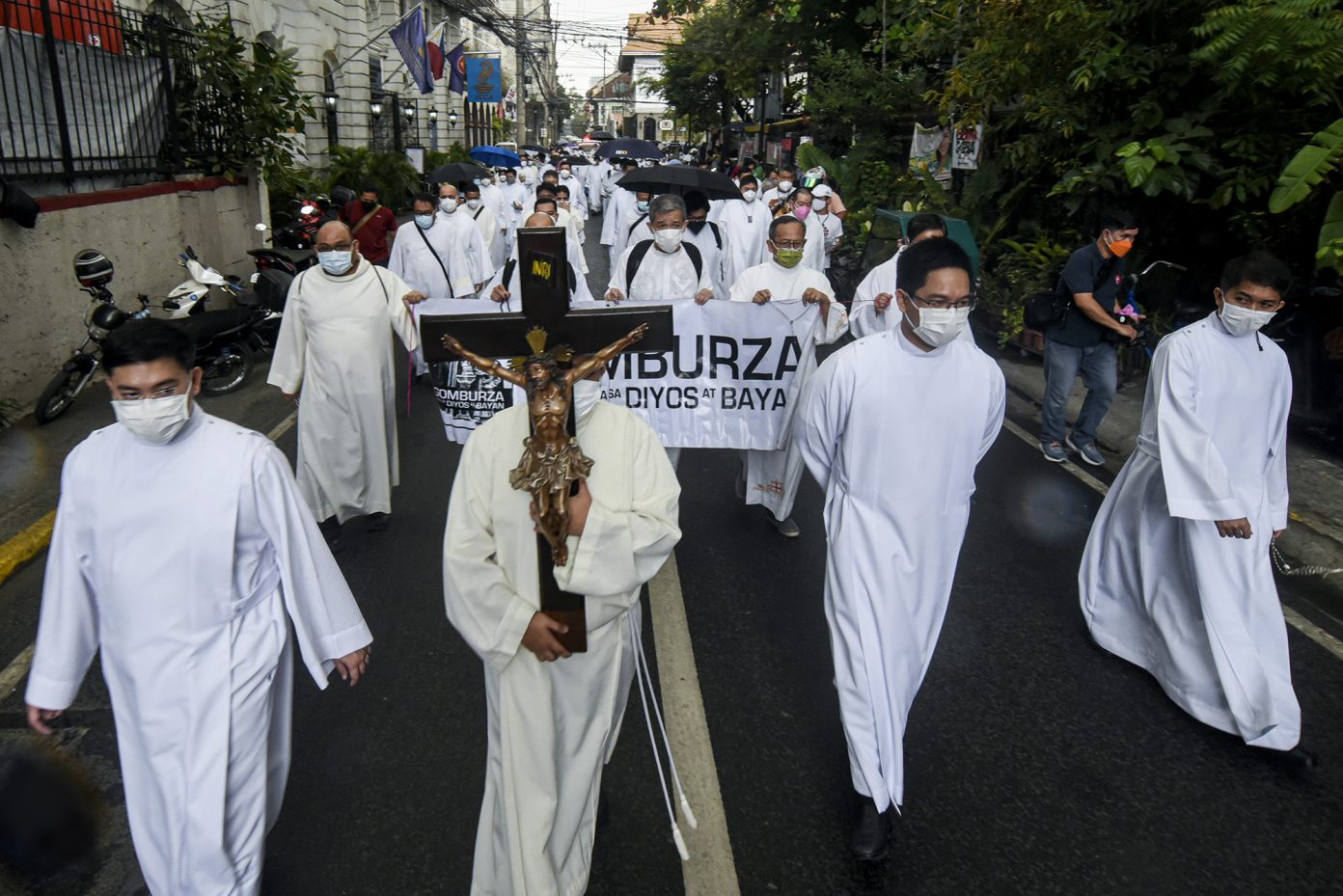By endorsing candidates, clerics run the risk of being partisan. Partisanship implies division. But clerics are supposed to be sources of unity in the community. They are supposed to foster, among people, peace and harmony based on justice (Can. 287 par. 1).
That’s why even in the teachings of the popes and the Church, the role of clerics in the socio-political sphere is merely to guide voters by educating and forming their consciences.
“It intends — as is its proper function — to instruct and illuminate the consciences of the faithful, particularly those involved in political life, so that their actions may always serve the integral promotion of the human person and the common good. The social doctrine of the Church is not an intrusion into the government of individual countries. It is a question of the lay Catholic’s duty to be morally coherent, found within one’s conscience, which is one and indivisible.” (from the Congregation for the Doctrine of the Faith, Doctrinal Note regarding the Participation of Catholics in Political Life)
Hence, the Church “forces” (impresses) on the people NOT the candidates but the values and platforms that are in accord with church teachings, specifically, the Catholic Social Teachings and Gospel values.
On a more practical note, candidates being endorsed, may later on support and enforce State policies that are diametrically opposed to the values espoused by the Church. What becomes now of clerics who pushed for these candidates? Will we hold them accountable for being complicit with such candidates?
The vote of an individual cleric is an exercise of his right.
But, asking others to vote for his candidate (though may be deemed a constitutional or legal right) may be violative of pertinent Church policies.
Can. 287 par. 2 states, “Clerics are not to play an active role in political parties … unless in the judgment of the competent ecclesiastical authority, this is required for the defense of the rights of the Church or to promote the common good.”
Take note that the prohibition is NOT absolute. There’s a qualifying paragraph that opens a window of direct involvement if only to defend the rights of the Church and to promote the common good.
Is there already a precedence that this happened? I argue that even in the absence may be of any precedence in this regard, the fact that it is possible should not shock the public if that indeed happens.
However, in the absence of the judgment of competent ecclesiastical authority/ies for direct political partisanship, the safer and more prudent route for clerics is to remain focused on issues that affect our people and to let people decide, after a period of formation, discernment and prayer, who among the candidates are worthy of their votes.
The public always thought that nuns and seminarians, since they are basically Church people, are included in the prohibition.
For clarity’s sake, the Code of Canon Law, as cited above, only mentions CLERICS, therefore, it is safe to assume that nuns and seminarians are not bound by the prohibition on partisanship, ergo, endorsement.
Having said those, clerics are, of course, morally obliged to denounce evil, lies and oppression in politics!
We cannot reneged on that duty even if it means being pilloried publicly. We would rather risk being criticized for doing what we believe is right than be fence-sitters earning the praise of a few.
Father Jerome Secillano is executive secretary of the committee on public affairs of the Catholic Bishops’ Conference of the Philippines.







